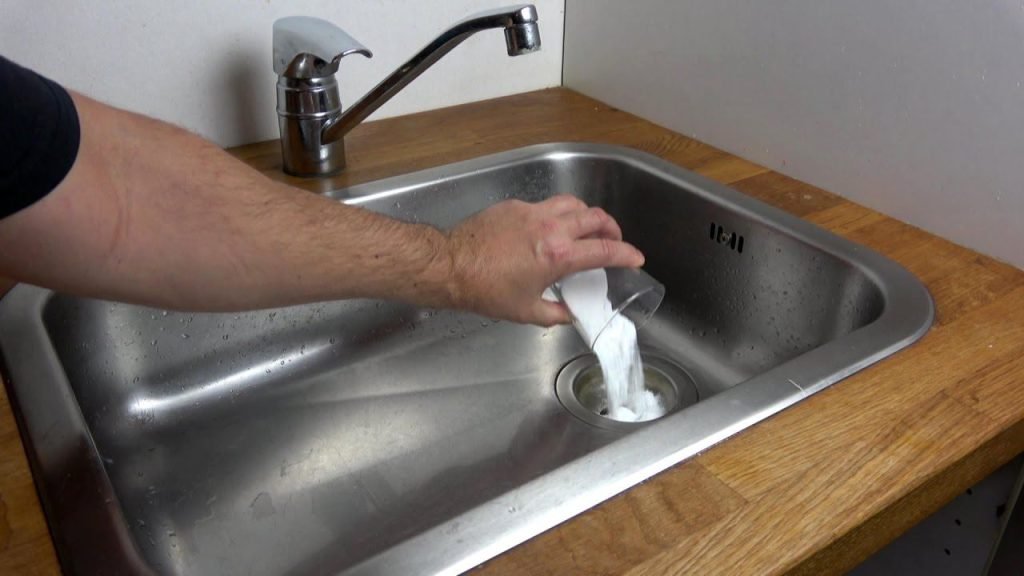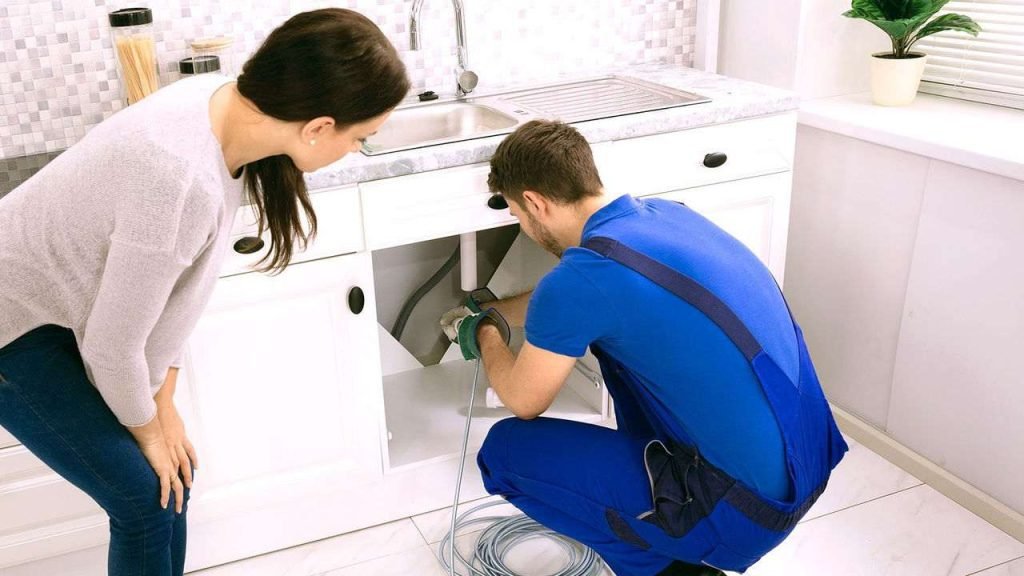Dealing with a persistent kitchen drain clog in your Alhambra home can be a real headache. Whether it’s food particles, grease, or foreign objects, a blocked drain can disrupt your daily routine and lead to unpleasant odors. But fear not! In this guide, Pro Plumbing will help you explore effective solutions to tackle those stubborn clogs and restore your kitchen sink to its optimal functionality.

Understanding the Culprits:
Before diving into solutions, it’s essential to understand what causes these persistent clogs. Your kitchen drain is a magnet for all sorts of debris. Food scraps, grease, soap residue, and even small objects can find their way into the drain, gradually building up over time. The accumulation of these materials narrows the pathway for water to flow freely, resulting in those dreaded clogs.
Simple DIY Methods:
The good news is that not all clogs require professional intervention. Start with simple do-it-yourself methods. Begin by removing any visible debris from the drain. A pair of gloves and a flashlight can be your best allies in this battle. Next, try using a plunger to create suction and dislodge the clog. If that doesn’t work, mix equal parts of baking soda and vinegar, pour it down the drain, and let it fizz for about 15 minutes. Follow it up with hot water to wash away the residue.
The Power of Enzyme Cleaners:
When home remedies don’t cut it, turn to enzyme-based drain cleaners. These eco-friendly solutions contain bacteria that feed on organic matter, effectively breaking down the clog without harming your pipes. Pour the recommended amount down the drain and let it sit overnight. Enzyme cleaners work slowly but are often effective against persistent clogs.
Mechanical Intervention – The Drain Snake:
If the clog remains steadfast, it’s time to introduce the drain snake into the equation. This flexible tool can navigate the twists and turns of your pipes to physically break apart the clog. Insert the snake into the drain and twist it while gently pushing forward. Once you feel resistance, you’ve likely reached the clog. Wiggle the snake to dislodge the blockage. Slowly retract the snake, and you should see the water start to flow freely.
When to Seek Professional Help:
Despite your best efforts, there might be instances when a professional plumber service expertise is required. If you’ve exhausted the DIY methods and the clog persists, it’s time to call in the experts. Professional plumbers have specialized tools like hydro-jetting equipment that can forcefully remove even the most stubborn clogs. Additionally, they can inspect your plumbing system for any underlying issues that might contribute to frequent clogs. Make sure you’re right on time to call for a professional help as clogged drain can lead to flooding your basement.
Prevention is Key:
Once you’ve triumphed over the persistent clog, it’s crucial to adopt preventive measures to avoid a recurrence. Install a sink strainer to catch food particles and debris before they make their way down the drain. Be mindful of what you put in the sink, avoiding pouring grease or oil down the drain, and scraping food scraps into the compost or trash. Regularly flush your drain with hot water to help prevent buildup, and consider using enzyme cleaners as a monthly maintenance routine.

The Role of Proper Maintenance:
Prevention goes beyond just reacting to clogs; it involves consistent maintenance. Regularly flushing your drain with hot water can help prevent the accumulation of grease and soap residue. Additionally, consider using a mixture of baking soda and vinegar as a monthly preventive measure. This routine maintenance can go a long way in keeping your kitchen drain free from stubborn clogs, saving you both time and money in the long run.
Environmentally Friendly Disposal Alternatives:
Part of preventing clogs involves rethinking how you dispose of kitchen waste. Instead of relying solely on your sink, start composting food scraps to minimize the organic matter that ends up in your drain. Grease and oil should be collected in a container and disposed of properly in the trash. By adopting these eco-conscious disposal habits, you not only reduce the risk of clogs but also contribute to a healthier environment.
The Wisdom of Professional Inspection:
Sometimes, clogs might be symptomatic of deeper plumbing issues. If you find yourself frequently battling drain cleaning clogs, it’s wise to have a professional plumber conduct a thorough inspection. There could be issues like tree roots invading your pipes, improper pipe slopes, or even aging pipes that need replacing. By identifying and addressing these underlying problems, you not only solve the current clog but also ensure the long-term health and functionality of your kitchen plumbing system.
FAQs
Why is my drain more clogged after baking soda and vinegar?
Using baking soda and vinegar can create a foaming reaction that pushes the clog further down the drain, worsening the blockage.
Why is my kitchen sink still clogged after snaking?
The snake might not have effectively broken down the clog, or there could be multiple clogs further down the plumbing line.
Why does my kitchen drain keep clogging?
Accumulation of food particles, grease, and soap residue over time narrows the drain pathway, leading to recurrent clogs.
Why is my kitchen sink not draining but pipes clear?
A clog might be deeper in the plumbing system, beyond the visible pipes under the sink, requiring further investigation.
Conclusion:
Dealing with a persistent kitchen drain clog in your Alhambra home might seem like a daunting task, but armed with the right knowledge, right professional drain cleaning and tools, you can tackle the issue head-on. From DIY methods and enzyme cleaners to the power of a drain snake and professional assistance, there’s a solution for every level of clog severity. By understanding the causes, employing preventive measures, and knowing when to seek professional help, you can maintain a smoothly flowing kitchen sink and bid farewell to those pesky clogs.

